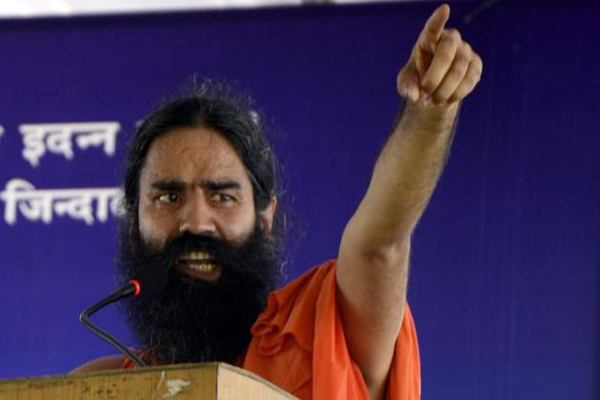
New Delhi, August 12: Ramdev on Sunday warned of a "big revolution" if the Prime Minister did not meet his demands for announcing immediate steps to bring back black money, enactment of a strong Lokpal and measures to end corruption.
As his fast entered the fourth day on Sunday and the government continuing to ignore the protest, Ramdev wrote a letter to Prime Minister Manmohan Singh, asking that his demands be accepted and suitable measures taken to implement them.
Issuing a fresh appeal and declaring a new deadline, Ramdev targeted the Prime Minister saying he has to show political honesty and political will on the matter.
He alleged that Singh did not honour the promise on declaring black money a national asset or taking steps to bring back black money stashed away abroad.
"When UPA came to power, the Prime Minister promised that black money will be brought back in 100 days. Many such 100 days have gone by but black money is still stashed in tax havens abroad," he claimed.
"You are being hailed as an honest person. We don't doubt your personal honesty. But you will have to show political honesty and political duty. If you do not do your duty, then there will be a question mark on your political honesty," Ramdev said.
Addressing his supporters at Ramlila Maidan here, Ramdev said the fast, which was to end on Saturday evening, was continuing and a decision on the next course of action will be taken in the evening.
"Till a decision on our demands are not taken, I am ready to continue my fast. The fast will not end today. When it will end, I will tell you tomorrow," he said.
"We wrote to you (Singh) earlier regarding the issue. We have now sent you a fresh letter. We will wait till this evening. If there is no decisive action, there will be a big revolution from tomorrow," he said.
Though he was to announce his plans on Saturday evening, Ramdev has been extending his deadline and deferring announcement of his next course of action. He had said on Saturday evening that he will announce his strategy on Sunday morning but he deferred it for the evening with a letter to the Prime Minister.
The fourth day of Ramdev's protest saw erstwhile Team Anna member Kiran Bedi making a presence at the fast venue though Anna Hazare and other members of the team have kept away.
Ramdev also extended an invitation to all parties to join his protest if they agreed with his demands.
Ramdev also sought to attack Congress saying though he was not singling out the party on the issue of black money, it had ruled the country for most of the time after Independence and, hence, it had to take responsibility.
"We are not here to tarnish anybody. But what is the danger that Congress perceives in bringing back black money or declaring it national asset, if they do not own it? We had given you time till yesterday. Your time is over and now our innings start," he said.





Comments
Add new comment